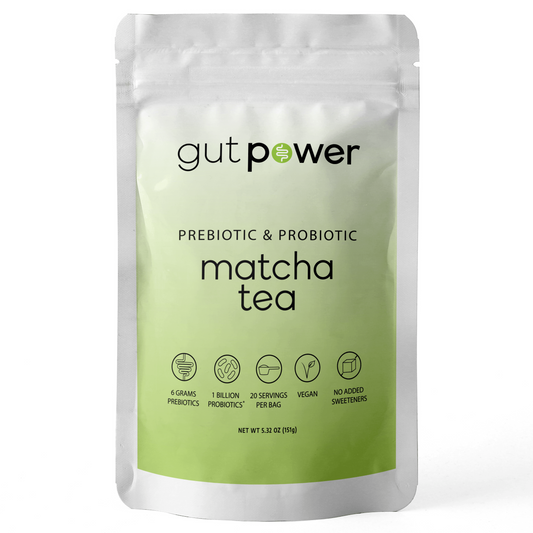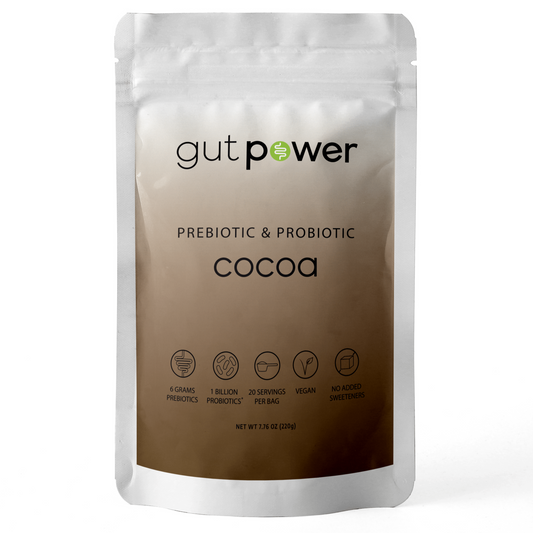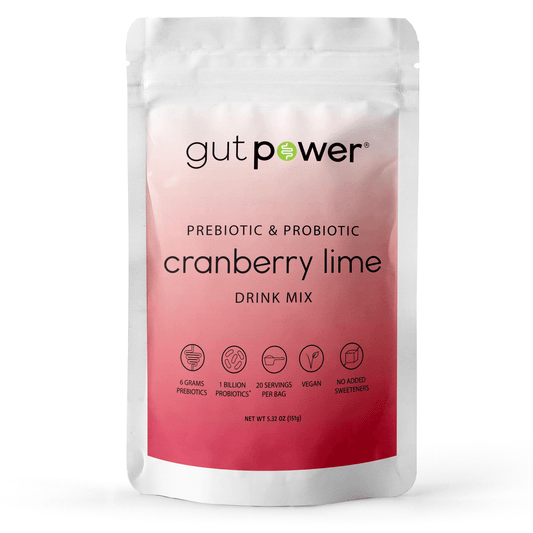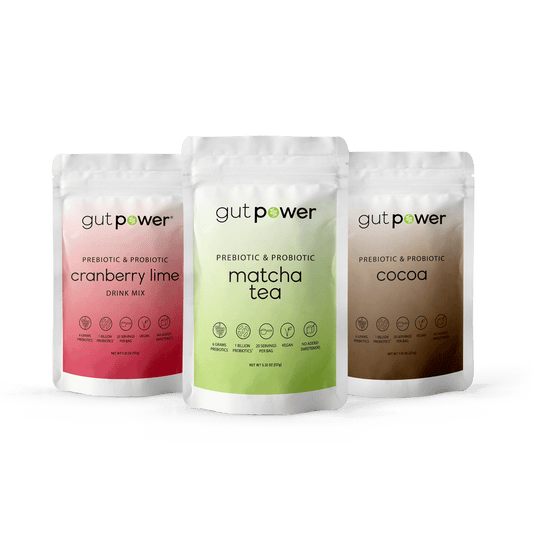So, you’ve made the jump to purchase probiotics and get on your gut health game. Congrats! You might be wondering, however -- do probiotics need to be refrigerated?
What are Probiotics?
Probiotics definition: According to the World Health Organization, probiotics are defined as “live microorganisms which when consumed in adequate amounts as part of food confer a health benefit on the host” (1).
In English, that means probiotics are good bacteria that you can use to help rebalance your gut microbiome. Remember, an imbalanced microbiome may be causing your digestive issues (read more about that here). Rebalancing it with probiotics helps many people mitigate their symptoms.
Let’s take a look at a few benefits of probiotics before we talk about refrigeration.
Probiotics may help:
- Reduce constipation
- Reduce bloating
- Reduce gas
- Reduce acid reflux
- Improve mental health
- Improve immunity
- Improve skin complexion
This list makes probiotics out to be a miracle pill -- but the catch is that each strain of probiotic has its own individual benefit. Your probiotic won’t have all of these benefits. Instead, it will target one or two.
Why Probiotic Strain Matters When it Comes to Refrigeration
So, every strain of probiotic (which are bacteria -- don’t forget, these are living things!) does something different. Along the same line of thinking, each probiotic strain has different characteristics, like how it responds to temperature.
Some strains are rugged and don’t need to be refrigerated. Others are hypersensitive and need to be stored in a cool, dark place. These strains can be killed by heat, moisture, or light.
For example, Lactobacillus acidophilus probiotics need to be refrigerated. The probiotics we use in Gut Power drinks are heat-stable, meaning they don’t need to be refrigerated and can even be put in hot water!
Some companies choose to put a large “overage” of probiotic CFUs in their products to make their products “shelf-stable,” even though they use a strain that needs to be refrigerated. How does that work?
Say a probiotic label says it has 1 billion CFUs per capsule. The company may put 5 billion CFUs in each capsule instead, so that by the end of the shelf life of the product, 80% of the probiotic would have died off, leaving 1 billion CFUs for the consumer.
In the meantime -- if you’re consuming a relatively fresh product, for example -- that 80% may not have died off yet, leaving you with a larger dose of probiotics.
While having a big dose of probiotics might sound like a good thing, these large doses may be problematic for some people. This is not something that a company will generally disclose, though, so you’d need to look into the specific strains the product contains and see if they are sensitive to heat.
Just remember that it’s something to watch out for if you’re buying from other companies and you're concerned about large doses of probiotics. For the most part, though, this is nothing to worry about.
Benefits of Non-Refrigerated Probiotic Strains
We like probiotics that don’t need to be refrigerated for their convenience (and, of course, the fact that they are effective!).
If they hang out on our kitchen counter for a while, it’s no biggie. And if we want to take them with us on a trip, no worries there either.
But remember - every strain of probiotic strain has different characteristics. So if the probiotic you need for your issue does need to be refrigerated, make sure to keep them in there!
The Bottom Line: Refrigerated Probiotics vs. Non-Refrigerated Probiotics
Because probiotic strains respond differently to their environment, whether or not you will need to refrigerate yours depends on what strain you're taking. The packaging should tell you if it needs to be refrigerated or not - but be aware of the “overage” strategy we noted above.
Though non-refrigerated probiotics are generally more convenient, make sure you’re purchasing a probiotic based on your health goals and lifestyle, not solely their preservation needs.
If you’re looking for digestive and immunity benefits, for example, the BC30 probiotic strain would be a good fit (that’s us)! From there, decide if the way it should be handled (refrigerated vs non-refrigerated) makes sense for how you’d like to use the probiotic within your lifestyle.





